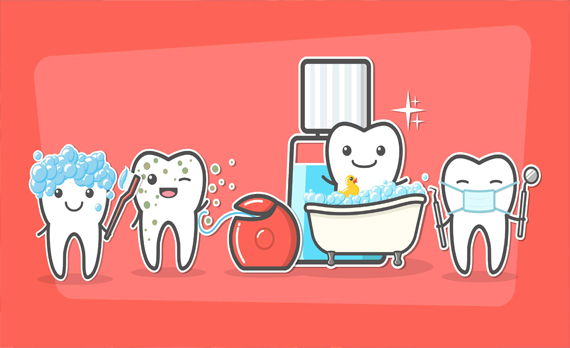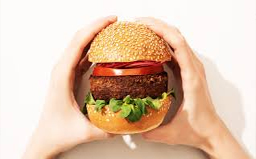It’s no secret that a set of pearly whites can boost your confidence and brighten your smile. As a result, many people want whiter teeth, but achieving white teeth isn’t just about aesthetics. Healthy, white teeth start with strong enamel. That’s because enamel—the outer protective layer of teeth—is what keeps teeth white. Making your teeth enamel stronger may impact the color of your teeth and make them whiter. Pronamel Active Shield Whitening actively helps replenish or strengthen acid-weakened enamel for strong white teeth. Here are some tips for how to make your teeth stronger and maintain a stunning smile.

8 Ways to Make and Keep Your Teeth Strong and White
1. Eat calcium-rich foods.
Calcium is essential for strong, healthy teeth because it helps remineralize enamel. Incorporate healthy amounts of dairy products, leafy greens, and nuts into your diet.
2. Drink water instead of soda or juice.
Acidic drinks like soda and fruit juice wear away enamel, which can contribute to the yellowing of your teeth over time. Water is a much more enamel-friendly choice as it has a relatively neutral pH level.
3. Brush with an enamel-strengthening toothpaste.
Use a specialized toothpaste like Pronamel Active Shield Whitening. Its formula works to strengthen enamel and whiten teeth for a whiter smile with twice daily brushing.
4. Reduce foods and drinks that stain enamel.
Drinks such as dark soda, red wine, tomato juice, and coffee contain a combination of acids and pigments that can discolor or weaken your enamel.
5. Eat a balanced diet.
In addition to calcium, getting enough teeth and enamel-friendly vitamins and minerals, like vitamins D, A and phosphorous, is important for keeping teeth strong and white. Try adding more colorful fruits and vegetables to your diet.1
6. Get plenty of fluoride.
Fluoride helps strengthen the surface of the tooth and make it more resistant to erosion. It repairs tooth damage due to acids in our diet through a process called remineralization. Drinking fluoridated tap water, brushing with a fluoride toothpaste, and visiting your dentist regularly for fluoride treatments can make your teeth stronger, and subsequently whiter.2
7. Avoid DIY whitening remedies.
Creating your own whitening solution using household ingredients may seem like a budget-friendly way to make your teeth whiter, but most homemade pastes do more harm than good. Ingredients like vinegar, charcoal and lemon can be too acidic or abrasive on teeth and may wear away your enamel after prolonged exposure.3
8. Don’t forget about the rest of your mouth.
Good oral care is more than just proper brushing. Remember to floss and brush your tongue—because a healthy mouth and gums help keep teeth healthy and white, too.
With a few simple changes to your oral care routine and diet, you can make your teeth stronger while improving the health and appearance of your smile.
*vs. Pronamel® Daily Protection
Source Citations:
ADA Marketplace – American Dental Association. https://marketplace.ada.org/blog/dental-business/vitamins-and-minerals-guide-to-the-best-supplements-for-healthy-teeth/. Accessed 4/5/23.
Fluoride | MouthHealthy. Oral Health Information from the ADA. https://www.mouthhealthy.org/all-topics-a-z/fluoride. Accessed 4/5/23.
Natural Teeth Whitening. MouthHealthy. Oral Health Information from the ADA. https://www.mouthhealthy.org/all-topics-a-z/natural-teeth-whitening/. Accessed 4/5/23.
Dental Tips of the Day
1. Brush your teeth
There’s no way around it: you have to brush at least twice a day to remove bacteria. If not, cavities can occur, which are mainly caused by the accumulation of bacteria. Food and drink are the primary transmitters, so it stands to reason that brushing your teeth regularly will remove that harmful bacteria.
2. Use fluoride toothpaste
Not all toothpastes are created equal. You need one with fluoride in it. Look for the ADA Seal of Acceptance on the tube and you’ll know it has fluoride in it. This will prevent tooth decay and strengthen your teeth at the same time, lowering your risk of future mineral loss.
3. Nix the sugar
If you have a sweet tooth, this step will be really hard. Sugar, loves to mingle with bacteria in your mouth, and consequently will break down tooth enamel. Actually, studies show that a higher frequency in sugar consumption leads to demineralization more than the amount of sugar you are consuming. In a nutshell, it’s better to eat an occasional hot fudge sundae than small amounts of sweets on a daily basis.
4. Chew sugarless gum
Sugarless gum can actually promote tooth remineralization, as it helps remove plaque, sugar, and carbs from your teeth while at the same time encouraging the salivary glands to produce more saliva. On top of that, gum acts as a barrier to blocking mineral loss.
5. Consume fruits and fruit juices in moderation
Fruit is part of a balanced diet, of course, but too much of it isn’t good for you. It’s highly acidic and erodes the enamel on your teeth. Citrus fruits, such as grapefruit and oranges, are the worst offenders. Fruit acids spur a process of calcium chelation on your tooth enamel, which allows acids to bind to calcium and then strip it all away. Fruit juices are no better because not only are they acidic, they contain added sugars as well.
6. Get more calcium and vitamins
Yes, calcium is produced within your teeth naturally, but this mineral can easily be stripped away by acids and bacteria over the years. Good news: it’s possible to replace calcium by eating calcium-rich foods such as cheese.
7. Decrease dairy product consumption
On the other side of the coin, while dairy products are natural sources of calcium, the lactose contained in milk products can boost the acidity in your mouth. Why? Lactose is a type of sugar. You may want to switch out your traditional milk for lactose-free versions or go with an alternative such as soy or almond milk – at least some of the time.
8. Try probiotics
If you’re looking to try probiotics for remineralization, you should choose strains that are naturally-occurring in the mouth so you can replace all the good bacteria without introducing harmful strains. Look for probiotics in pill form or within yogurt.
9. Avoid dry mouth
When you don’t have enough saliva production, dry mouth occurs. Turns out, you need saliva for your own comfort and to prevent cavities, plus it’s a critical part of remineralization. Saliva gets rid of your incessant dry mouth, but it pulls double duty because it contains phosphate and calcium. Your dentist can recommend special chewing gums and rinses that will help boost your saliva activity.
10. Drink more water
Doctors, nutritionists, and dentists all agree: water is the best beverage you can choose. Not only is it naturally sugar-free, it also purges harmful substances from your body. Simply rinsing out your mouth with water when you don’t have access to a toothbrush can reduce demineralization, too.
To cap it all off…
The bottom line is, mineral loss is inevitable due to all the elements your teeth are exposed to every day. Sure, your teeth were made to take on all that wear and tear, but even teeth have limits. Do your part to remineralize your teeth and put an end to demineralization. You can achieve this through regular dental visits, brushing and flossing daily, and making sure your teeth are straight and clean. The best way to straighten your teeth is with Invisalign clear aligners at Clear Smiles.
Get a Free Consult From Clear Smiles Today!
For more advice on how to make weak teeth strong again or any other teeth tips, call us or take our smile quiz and get $150 off your treatment. Book now to get started on strengthening and straightening those pearly whites.
The idea is that putting fried, sugary, fatty, highly processed, and nutritionless foods into your body will not do you any favors. You may not just become sluggish and overweight—but you also run the risk of developing heart issues, high blood pressure, type 2 diabetes, asthma, certain cancers, depression, and much more. In fact, the saying’s never been more true than when it comes to our teeth: eating unhealthy foods also leads to tooth decay and bad breath!
What foods are good for your teeth? When you think about it, it’s no coincidence that the foods that are good for your body are also good for your teeth and gums. After all, food and drink pass through the mouth first. But certain “dental superfoods” can have a real impact on your oral health. What are they, and what do they do? You may be surprised by what’s on the list in addition to the usual healthy selections you’d expect to see.
The Top 10 Best Foods for Your Teeth
The infographic below, created by one of our dental students, offers a good checklist of what foods are good for your teeth and why you should include these in your diet:
Dark chocolate. You may be surprised to find chocolate on this list. But it contains CBH, a compound that helps harden tooth enamel.
Almonds. These nuts are full of protein and calcium, with the added bonus of helping scrape off plaque when you chew them.
Garlic. This one may seem counterintuitive because garlic can contribute to bad breath. But allicin, a compound derived from garlic, keeps the bacteria that cause tooth decay from overgrowing in the mouth.
Leafy greens. These are jam-packed with calcium, vitamin A, folic acid, and vitamin C that can keep teeth healthy, along with the added bonus of filling you up with fewer calories.
Cheese. Milk products can build strong bones, and cheese is no exception.
Salmon. This and other fatty fish provide vitamin D, calcium, and omega-3 acids that promote gum health.
Fruits and vegetables. These do so much good for your oral health by helping kill some oral bacteria, acting as a natural toothbrush, providing vitamins, and more.
Strawberries. These contain malic acid, a natural tooth whitener.
Unsweetened yogurt. This provides calcium for strong bones, teeth, and tooth enamel.
Green and black teas. These beverages do more than help you relax. They contain fluoride that protects against tooth decay and also helps reduce gum inflammation.
Other Benefits You Get When You Eat Foods for Healthy Teeth
When you eat healthy foods, you’ll not only reduce the chance of developing health risks or lessen their effects, but you’ll feel better, too. You’ll have more energy to go about your daily activities. And you may also find that you have better digestion, get a better night’s sleep, and feel more positive. Take a look at this dental “superfoods” infographic to make it easy to keep track of the best foods for your teeth.


